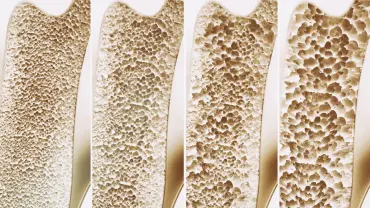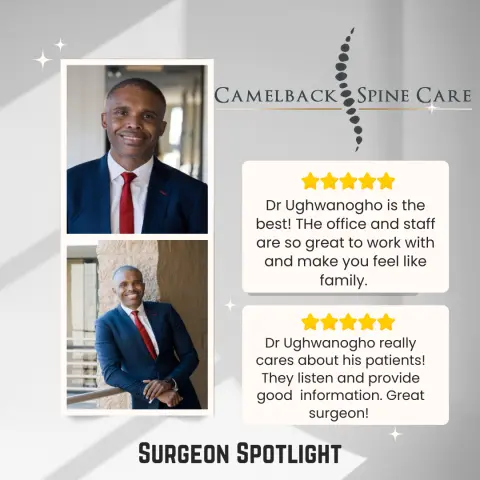Warning Signs You Might Have a Herniated Disc
At Camelback Spine Care, we treat herniated discs every day—and early recognition makes a real difference. A herniated (or “slipped”) disc happens when the soft inner portion of a spinal disc pushes through its outer layer and can irritate nearby nerves.
🚩 Common Warning Signs
-
Back pain that travels into the buttock, thigh, calf, or foot (sciatica)
-
Numbness, tingling, or “pins and needles” in an arm or leg
-
Muscle weakness—trouble lifting the foot (“foot drop”) or gripping objects
-
Pain that worsens with coughing, sneezing, bending, or sitting
-
Neck pain with arm symptoms (if the disc issue is in the cervical spine)
-
Symptoms on one side of the body more than the other
🆘 Seek Urgent Care Now If You Notice
-
Loss of bowel or bladder control
-
Severe, rapidly worsening weakness
-
Numbness in the “saddle” area (inner thighs, buttocks, genitals)
These can be signs of a rare but serious condition and need immediate medical attention.
📌 Who’s at Higher Risk?
-
Repetitive lifting/twisting at work or in sports
-
Prolonged sitting or poor posture
-
Smoking or nicotine use
-
Being overweight
-
Family history of spine problems
-
Age 30–60 (most common), but it can occur at any age
✅ What You Can Do Now
-
Modify activity: avoid heavy lifting and deep forward bending
-
Use short courses of anti-inflammatories (if safe for you)
-
Apply heat or ice to reduce pain and muscle spasm
-
Walk and gently stretch to keep joints moving
-
Track your symptoms—note what makes them better or worse
🧑⚕️ How We Help at Camelback Spine Care
Our board-certified orthopedic spine surgeons and specialized team offer:
-
Accurate diagnosis with targeted physical exam and imaging when needed
-
Personalized non-surgical care: guided physical therapy, medications, activity modification, epidural injections when appropriate
-
Minimally invasive surgical options when symptoms persist or weakness is present
-
Onsite postoperative physical therapy to accelerate safe, supervised recovery
There are many reasons why your disc can herniate, with degenerative disc disease at the head of the list. As you age, the outer layers of your discs lose moisture and become more brittle, leaving them more susceptible to ruptures and compression.
When to seek treatment for a herniated disc
In most cases, some rest and targeted exercise can help relieve the symptoms of a herniated disc. To help combat the pain, you should take some over-the-counter medications, such as nonsteroidal anti-inflammatories. Ice and heat therapies can also help with your symptoms. Most herniated discs don't require surgery, but in extreme cases we can perform a lumbar microdiscectomy in your lower back or an anterior cervical discectomy and fusion in your neck.
If you are struggling with what you think is a herniated disc, please contact one of our offices in Sun City or Phoenix, Arizona to get on the road to relief.

.webp)



.webp)
